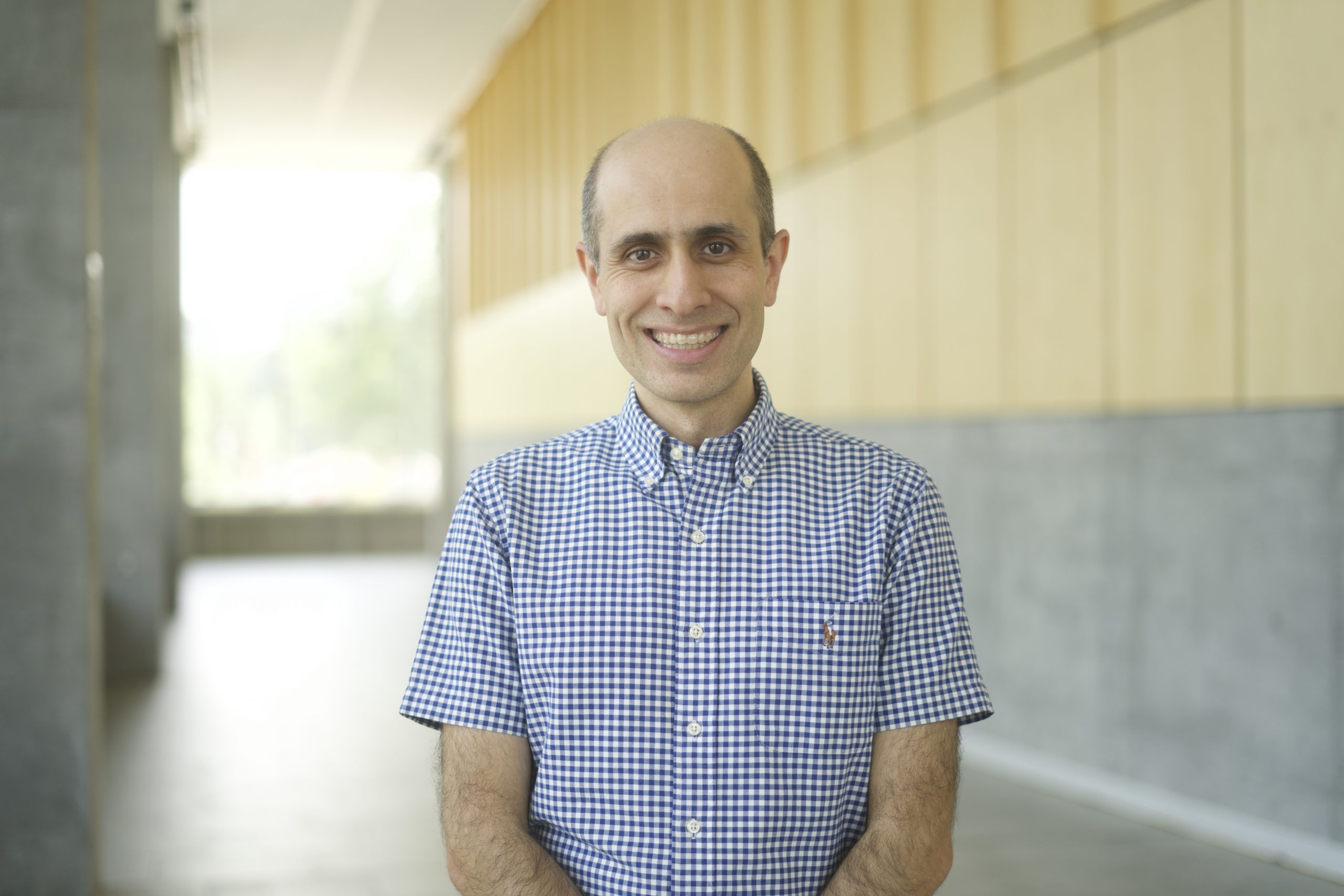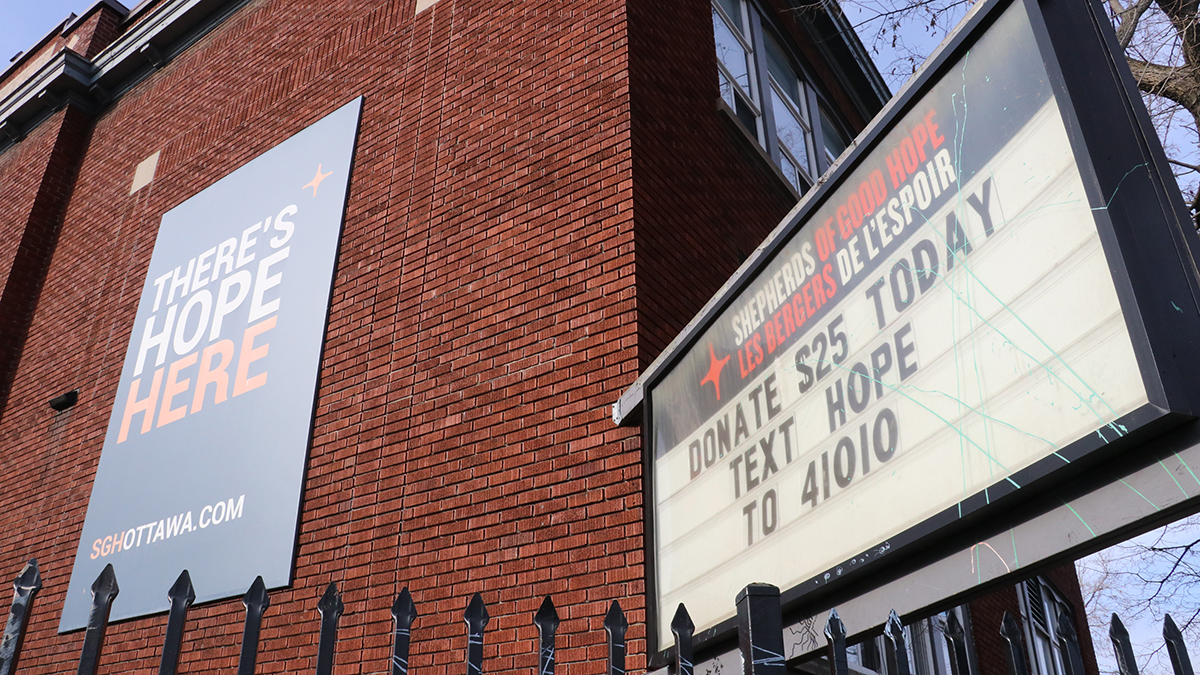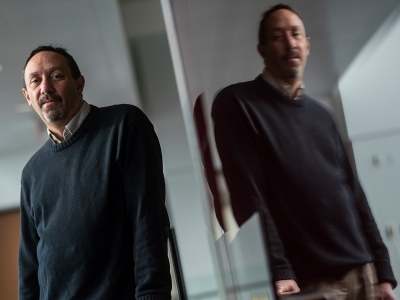Lead image by Annika Scurfield
By Jena Lynde-Smith
In 2020, Ottawa became the first city in Canada to declare a housing and homelessness emergency, when on any given night, an average of 1,900 people including children were staying in a shelter.
And this problem is being seen across the nation. In Canada, more than 235,000 individuals experience homelessness every year with over 30 per cent being chronically homeless — meaning they spend more than 180 days a year in emergency housing or shelters.
In collaboration with the City of Ottawa, Carleton University researcher Majid Komeili is developing an AI-powered tool that will predict an individual’s risk of becoming chronically homeless to aid in early and effective intervention.
“The tool will help social service workers provide the necessary resources in a timely manner to stabilize their housing, enhance social inclusion and ultimately reduce the likelihood of the recurrence of homelessness,” says Komeili, an associate professor in Carleton’s School of Computer Science.
“The City of Ottawa is committed to ending chronic homelessness through our 10-Year Housing and Homelessness plan. With this project, we are hoping to understand whether our administrative data can provide deeper insights into the community’s needs and how those can be addressed,” says Kale Brown, Manager of Homelessness System and Operations for the City of Ottawa.

Predicting Chronic Homelessness in Ottawa
One tactic the City’s 10-year Housing and Homelessness Plan outlines is to expand homelessness prevention by enhancing crisis response and strengthening support services.
Komeili’s work is assisting these efforts by determining the links between chronic homelessness and external factors. This research will identify patterns that can help predict who is at risk.

Majid Komeili, an associate professor in Carleton University’s School of Computer Science
“It’s important to understand what is causing homelessness in order to determine who is in urgent need of those resources,” Komeili explains. “It can also help work towards preventing it in the long-term.”
Some links they are considering include weather, seasonal changes, along with economic factors such as unemployment rates, inflation and GDP.
“No one individual, organization or level of government can address the local housing and homelessness crisis alone,” says Vinh Nguyen, Manager of Social Policy, Research and Analytics with the City.
“By working with academics and evaluating solutions through research, we can work toward making our housing and homelessness system more responsive, flexible and tailored to the emerging needs of the community.”

AI Screening Tool for Social Services
Komeili’s predictive work is informing the other half of his project with the City of Ottawa: an AI tool that can identify when someone is at risk for chronic homelessness.
Working with Carleton computer scientist Olga Baysal and students in Carleton’s Institute of Data Science, Komeili is developing an intelligent screening tool that is unbiased and ethical in its assessment.
“It’s an assistive technology that will help social services better optimize their resources,” he says. “It’s a new tool for their toolbox.”
Currently, Ottawa homeless shelters use a digital intake system for people utilizing emergency housing. Social service workers are responsible for monitoring each person’s status – a monumental task for often under-resourced facilities.

Komeili’s tool could be implemented into the shelters’ existing database. Using individual data collected from intake forms, crosschecked against the external risk factors identified via his research, the tool could automatically rank each persons’ risk and flag those in need of urgent help to support workers.
“The system could alert anyone accessing the database to crisis cases and will provide an overview of each persons’ risk of becoming chronically homeless,” Komeili explains.
Implementing a system powered by machine-learning could prevent both human bias and error from interfering with potential care.
“An AI system can help make processes uniform and standardize the way that people receive support services, independent of the opinion of anyone who is looking at these files,” says Komeili. “The system isn’t the final decision maker. It’s a screening tool and second opinion that may help mitigate bias.”
This tool will be a key source of evidence on how the City of Ottawa can co-develop AI solutions with the homelessness support sector and their clients. The team hopes to initiate conversations with the sector in the fall of 2024.

Providing All Canadians a Place to Call Home
As outlined in Canada’s National Housing Strategy, the federal government is making access to safe, affordable and inclusive housing a priority, aiming to cut the number of people experiencing chronic homelessness in half by 2028.
By developing an AI screening tool for shelters and conducting groundbreaking research on the external factors leading to chronic homelessness, Komeili hopes his work will help with immediate intervention, as well as inform future policymaking.
“Helping with homelessness means contributing to creating a society where everyone has a place to call home, where individuals are not just statistics,” he says.
“It’s about fostering empathy, compassion and understanding, and working towards a society where no one is left behind.”
Full width photos from iStock
Tuesday, May 28, 2024 in Artificial Intelligence (AI), Computer Science, Government, Social Work
Share: Twitter, Facebook



